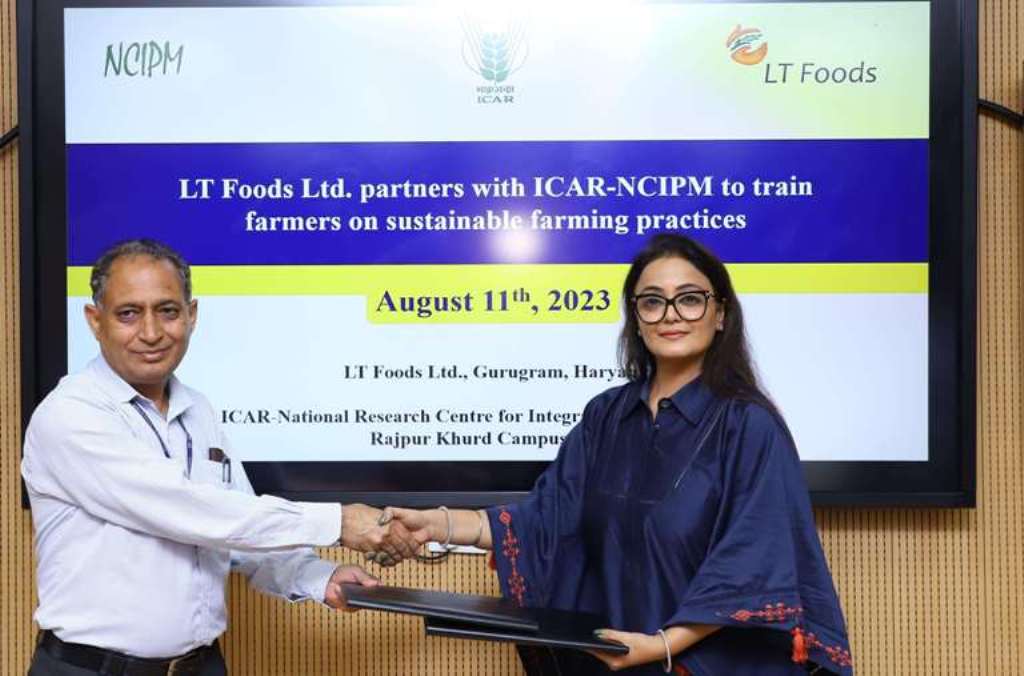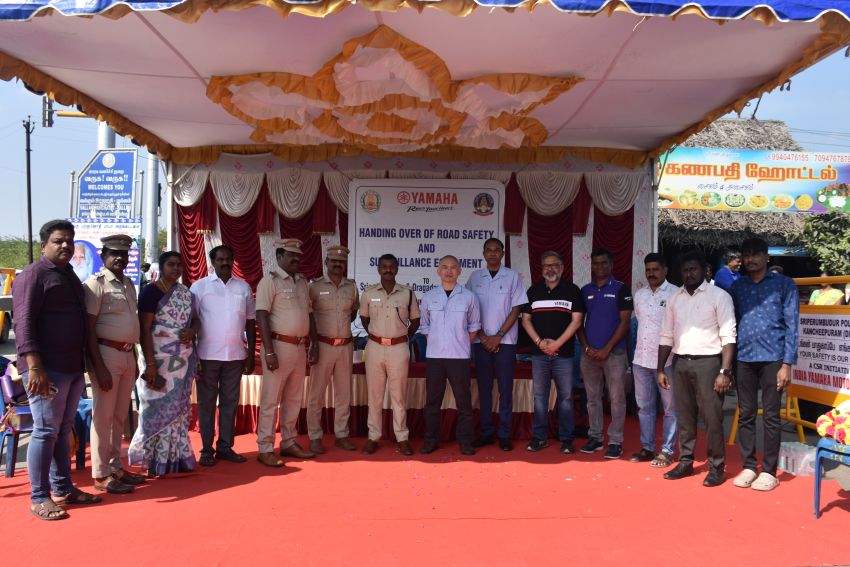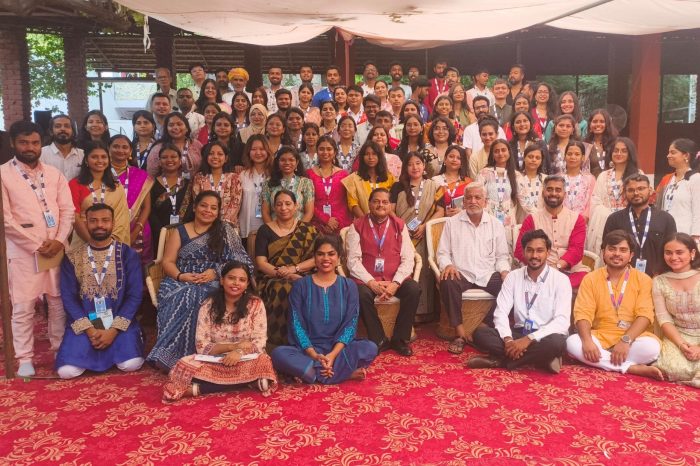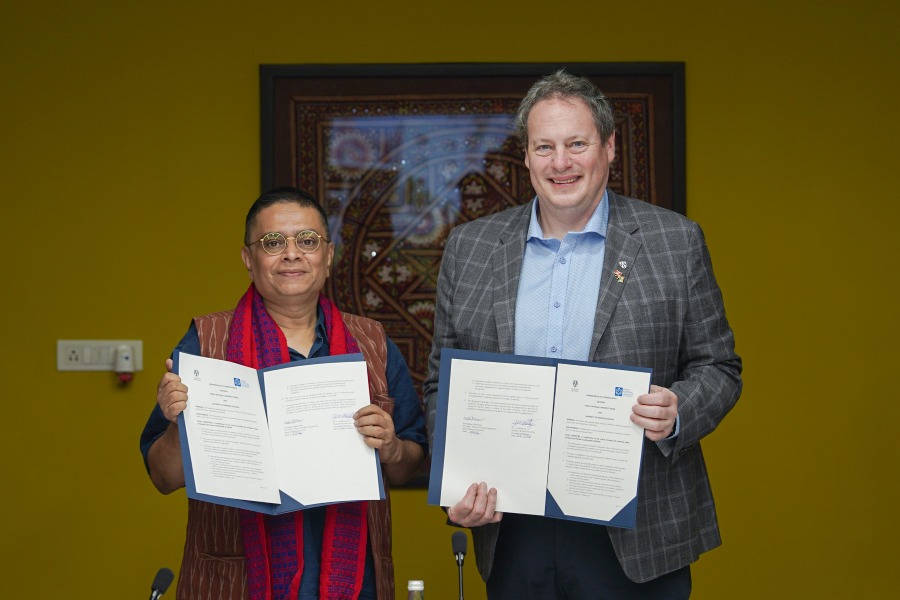New Delhi, August 11, 2023. LT Foods, the venerable Indian-origin global Fast-Moving Consumer Goods (FMCG) company specializing in consumer food products, has inked a significant Memorandum of Understanding (MoU) with the Indian Council of Agricultural Research (ICAR) - National Research Centre for Integrated Pest Management (NCIPM). The partnership is aimed at imparting training to 10,000 farmers across the nation in Sustainable Farming Practices.
This strategic move aligns with LT Foods' overarching Environmental, Social, and Governance (ESG) objectives, as it strives to educate 50,000 farmers on Sustainable Farming Practices by the year 2025. Building upon the success of its Sustainable Rice Production (SRP) program, which has already trained approximately 20,000 farmers, LT Foods' initiative intends to bridge the gap between conventional and sustainable rice cultivation through the implementation of Integrated Crop Management techniques.
By joining forces with ICAR-NCIPM, LT Foods is poised to elevate the number of trained farmers to nearly 30,000 by the close of the current year. As a preeminent institution entrusted with the coordination, guidance, and administration of research and education in Integrated Pest Management, ICAR-NCIPM is set to play a pivotal role in this transformative endeavor. The training is slated to benefit farmers in the states of Haryana, Punjab, Uttar Pradesh (U.P.), and Madhya Pradesh (M.P.).
Under this collaboration, farmers will receive comprehensive guidance on optimizing the utilization of resources such as water, pesticides, and fertilizers. This approach will facilitate regenerative agricultural practices that harmonize with LT Foods' broader ESG goals, specifically in curbing Greenhouse Gas (GHG) emissions and conserving water consumption. ICAR-NCIPM will develop instructional literature pertaining to Integrated Crop Management (ICM) within the context of Rice, a key facet of Sustainable Rice Production (SRP). Additionally, the organization will extend its expertise by advising on the management of critical pests and diseases associated with rice through ICM. This knowledge dissemination will occur via field schools and training sessions, thereby empowering farmers to adopt sustainable practices.
Speaking on the occasion, Ms. Monika C. Jaggia, Vice President - Finance & Strategy, LT Foods, said, “At LT Foods, our foremost priority is to integrate sustainability across our operations. We firmly believe that the well-being and prosperity of farmers - an important stakeholder in our value chain, are intrinsically linked to the preservation of the environment. By prioritizing sustainable practices, we are not only enhancing the economic viability of our farmers but also upholding our collective responsibility to protect and conserve the planet’s precious natural resources. Our collaboration with ICAR-NCIPM is an incremental effort to step up the effort and promote sustainable farming practices in the country.”
Sharing his views, Mr. Kevin Parker, Advisor, Farmer Connect Programme, LT Foods, said, “We, at LT Foods, have been providing training to farmers on Sustainable Farming Practices for long in Madhya Pradesh, Haryana, Punjab and Uttar Pradesh. To date, we have trained c.20,000 farmers. We are now committed to scaling up our efforts and taking it to the next level. Aligned with our ESG goals, we are delighted to collaborate with ICAR-NCIPM to train 10,000 more farmers.”
Dr.Mukesh Sehgal, Principal Scientist and PI, ICAR-NCIPM, for the Project, said, “This partnership reflects our shared commitment to enhancing agricultural practices, promoting environmental stewardship, and securing a prosperous future for both farmers.”
Dr. Subhash Chander, Director, ICAR-NCIPM said, “We are glad to collaborate with LT Foods towards a momentous step of equipping our farming communities with the knowledge and tools they need to transition to sustainable farming practices.”
















.jpg)



